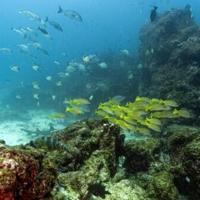The world’s oceans are close to becoming too acidic to properly sustain marine life or help stabilise the climate, according to a new report released on Monday. The report, by the Potsdam Institute for Climate Impact Research (PIK), outlines nine crucial factors that are essential for regulating the planet’s ability to sustain life.
Human activity has already exceeded safe limits in six of these areas in recent years. The report warns that the threshold for ocean acidification, the seventh crucial factor, is also on the brink of getting breached, as highlighted in the PIK’s first Planetary Health Check.
The safe boundaries that have been crossed include climate change, the loss of natural species and habitat, freshwater depletion, and an increase in pollutants like plastics and chemical fertilisers used in agriculture. Ocean acidification, largely driven by carbon dioxide emissions from burning fossil fuels, is now set to exceed sustainable levels.
Boris Sakschewski, one of the lead authors, explained, “As CO2 emissions increase, more of it dissolves in sea water, making the oceans more acidic. Even with rapid emission cuts, some level of continued acidification may be unavoidable due to the CO2 already emitted and the time it takes for the ocean system to respond.”
The report also discusses the impacts of acidic water on corals, shellfish, and phytoplankton, which in turn affect marine food supplies for billions of people and reduce the oceans’ capacity to absorb CO2 and mitigate global warming.
– Tipping points –
The report highlights the interconnectedness of the nine planetary boundaries, explaining that breaching one critical limit can destabilise Earth’s entire life system. Acidic water also limits the ocean’s ability to absorb CO2, further exacerbating global warming. The report emphasizes the importance of addressing these tipping points to prevent irreversible and catastrophic outcomes for future generations.






